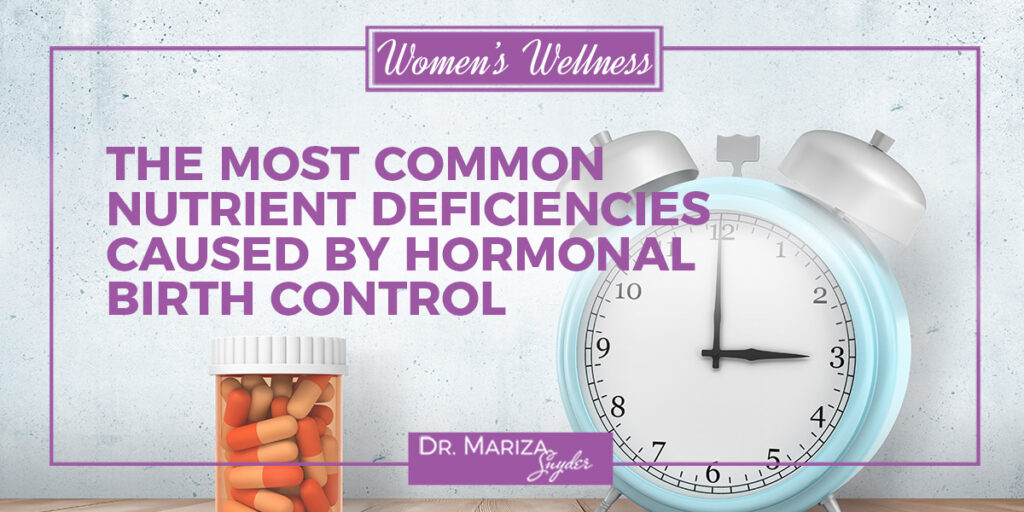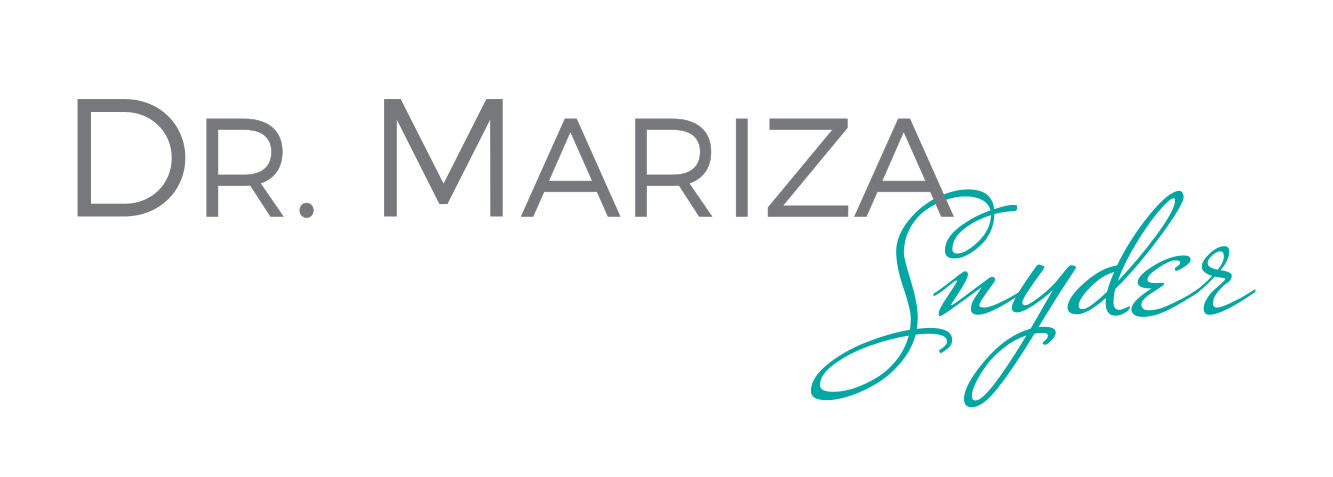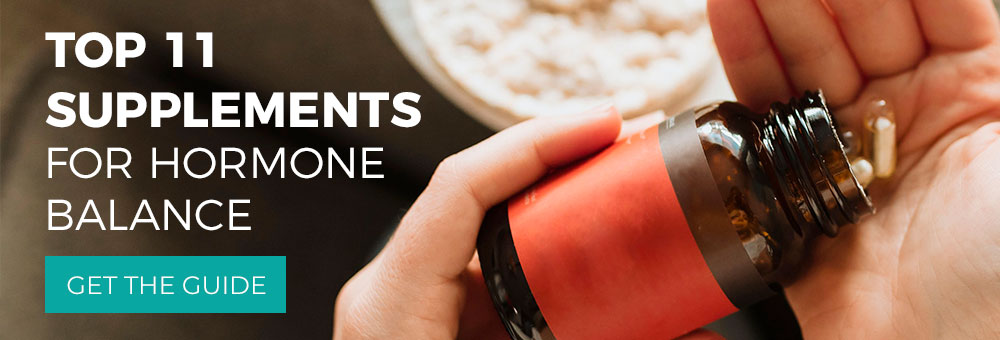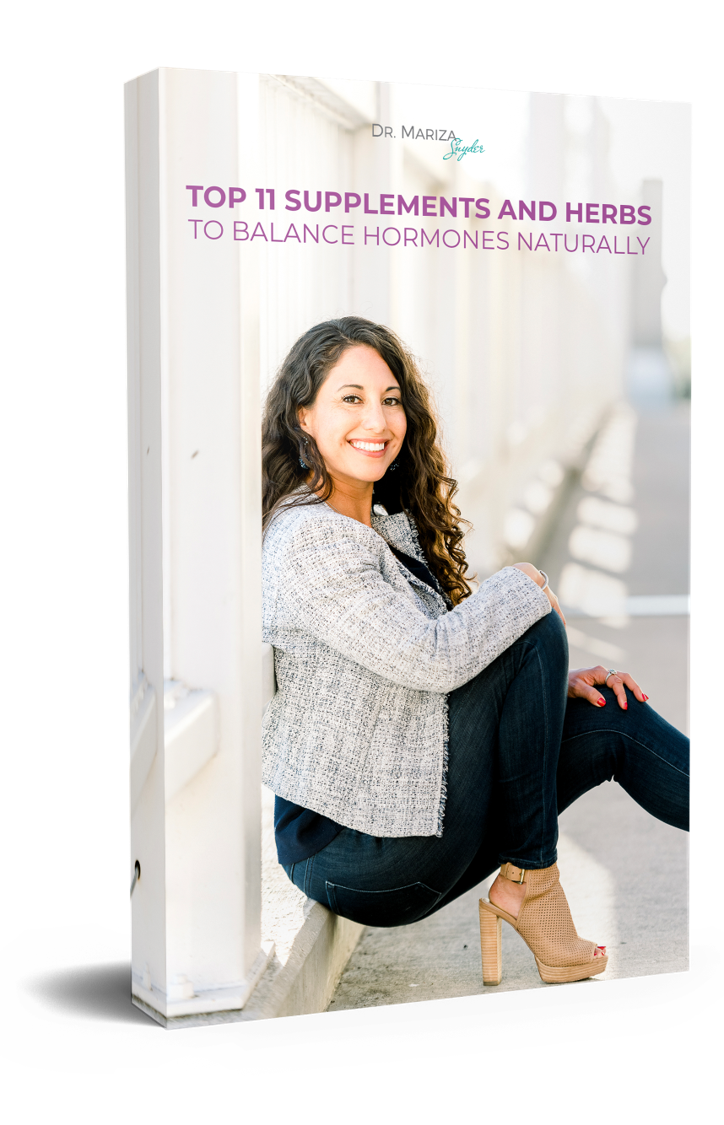
In April of 2021, my close friend Natalie called me with a concern I hear from so many women.
She’d been on birth control pills for 13 years, and when she and her partner decided they were ready to try to have a baby, all her doctor told her was that she needed to wait for her period to come back.
There was no recommendation to take particular supplements or focus on healing foods to replenish her body…
Just to wait for her period. So that’s what she did for 4 months.
But in April when she called me, Natalie was worried. Had she waited too long to start a family? Was there something more seriously wrong with her body? Why wasn’t she able to get pregnant even though they were doing everything “right”?
And could her exhaustion, PMS, painful periods, mood swings, sleep issues, and bloating be connected?
Deep down, Natalie knew something was off. These symptoms shouldn’t be happening—she’s a healthy 35-year-old, and doctors had told her she shouldn’t have any problems getting pregnant.
But month after month she felt defeated, sitting on her bathroom floor with another negative pregnancy test in her hand, and a deep sadness swept over her as she tried to figure out what to do next.
After she came to me, we worked with her doctor to run a few critical labs to see if anything was lurking under the surface… and it was.
You see, Natalie had been on birth control for so long that it had literally stripped her body of many of the critical nutrients you need to conceive and sustain a pregnancy. These nutrient deficiencies along with low progesterone during the luteal phase (where it’s supposed to be running the show) made pregnancy impossible in her body.
After talking through these results, Natalie committed to taking 60-90 days to boost her nutrient profile and progesterone levels. I had her focus on loving her gut, liver, and hormones with high-quality protein (25 grams per meal), fiber, and healthy fats, along with taking supplements to correct the deficiencies that were sabotaging her body.
Fast forward 4 months… and it worked! She called me to announce her pregnancy, and I am beyond thrilled for her and her partner!
Like my friend Natalie, many women are surprised to hear that birth control pills deplete nutrients from your body.
And women are even more surprised to hear that your doctor probably knows this, yet doesn’t pass this important piece of information onto you before prescribing it.
HOW DO BIRTH CONTROL PILLS DEPLETE NUTRIENTS?
Women go on the pill for many different reasons, beyond just preventing pregnancy. It breaks my heart to hear of teenage girls going on it just for acne (which can likely be solved through diet changes) and perimenopausal women going on it in their mid to late 40s for hot flashes and mood swings—but synthetic hormones in menopause do much more harm than good.
The way hormonal birth control pills or injections work is by intentionally disrupting your body’s hormone levels. They typically contain both synthetic estrogen and progestin (the man-made version of progesterone). These impact your ovulation, cervical mucus, and uterine lining to prevent pregnancy—but these hormones have other repercussions.
This is because estrogen and progesterone are sex hormones, yes, but they also impact nutrient absorption and metabolism, as well as many other processes in your body.
Studies find that birth control continually causes side effects like headaches, mood swings, weight gain, breast tenderness, bloating, nausea, decreased sex drive, blood clots, and cervical cancer—and clearly not all these things only have to do with your uterus and ovaries!
Birth control doesn’t stay limited to this one area of your body—it impacts every system, and it changes how the chemistry in your body works, especially when it comes to absorbing nutrients.
HOW BIRTH CONTROL AFFECTS YOUR GUT
The risk of intestinal inflammation, bowel diseases (like Crohn’s and ulcerative colitis) goes up dramatically the longer you are on the pill. The reason for this is still somewhat unclear, but it’s probably due to the effects of synthetic estrogen on the lining of your intestines.
This inflammation causes symptoms like gas and bloating, and it can also contribute to the malabsorption of nutrients through the intestines—which means even if you’re eating the right foods and taking the right supplements, your body STILL isn’t getting the nutrients it needs.
For most women who do not proactively work to resupply these critical nutrients and heal their gut, coming off the pill and trying to get pregnant can be a nightmare.
Your body can take months or years to get back to normal (it took me almost a year to get my cycle back after only being on the depo shot for 1.5 years), yet this isn’t something most practitioners warn you about.
Taking a quality probiotic is an essential starting point to get your gut to the point where it can even absorb the other nutrients your body needs. My favorite is Just Thrive probiotics (and you can hear me talk about the connection between gut health and hormone imbalance in this Essentially You podcast episode with Just Thrive’s founder).
Once you’re doing the work to heal your gut with probiotics and healing foods as I recommended for Natalie, correcting these deficiencies is your next step…
SO WHAT NUTRIENTS ARE DEPLETED BY THE PILL?
Here are the biggest players when it comes to nutrient deficiencies caused by birth control. What’s so heartbreaking is that pretty much all of these are critical for pregnancy, which is why Natalie had such a hard time conceiving after stopping!
If you or someone you love has been on birth control (even just for a short time) and are planning to get pregnant or dealing with constant disappointment from negative pregnancy tests, here are the ones you want to watch for:
#1: B9, also known as folate.
Folate is EXTREMELY important for a healthy pregnancy! After stopping birth control, it can take 3+ months for folate levels to return to a healthy level to supply what your body needs to develop the neural tube (brain and spinal cord) of a baby.
Note that this is different from folic acid (a synthetic version that is not as effective for your body). Supplementing with a high-quality prenatal (if you’re planning to try to get pregnant) and B-vitamin complex (whether you are or not) that contain methyl folate is an important step to regaining balance after birth control.
#2: B2 (Riboflavin), B6 (Pyridoxine), and B12 (Cobalamin).
These B vitamins all play different yet important roles in your body’s health and ability to get pregnant…
B2 is involved in energy production, growth, and metabolism. Additionally, being low in B2 can cause headaches and migraines (which are common side effects of the birth control pill).
B6 is primarily involved in protein metabolism. It’s also critical for converting tryptophan to serotonin, which is important for regulating your mood.
B12 is important for cellular metabolism, energy production, and DNA synthesis. Your body can’t make B12 on its own, so it’s critical to get enough of this through your diet (animal sources) or through a supplement. Low B12 often causes fatigue and low energy levels.
Taking a methylated, or activated, B vitamin is the best way to ensure you’re getting enough of these critical vitamins! Other forms cannot be put to use in your body (especially if you have an underlying COMP or MTHFR mutation). Many prenatal vitamins don’t use the active form of B vitamins (especially folate), so adding a quality B-complex is a great easy step towards better health!
My Activated B Complete supplement (check it out here) is formulated to be ideal for all women, pregnant or not, to restore these levels safely and naturally.
#3: Vitamin C
Estrogen in birth control increases how quickly your body burns through vitamin C, leading to a deficiency over time.
Vitamin C is like the duct tape of vitamins—it assists in almost everything, but it’s especially important for cleansing your cells of free radicals that damage your body, liver detoxification, immunity, and cellular energy.
We also need vitamin C to unlock the iron you take in through food or supplements, and iron-deficiency anemia is a major driver of exhaustion and infertility after being on birth control.
I recommend 500mg per day, and even more in the weeks immediately after stopping birth control or if you are feeling under the weather. My Vitamin C Boost powder is my favorite way to take Vitamin C (no horse-pill-swallowing required), and it’s DELICIOUS on its own or in smoothies! Check it out here >>
#4: Vitamin D
Research shows that over 65% of adults are deficient in vitamin D3, especially in colder weather areas (like much of the US, EU, Canada, and other countries around the world).
Vitamin D acts like a hormone in your body and can help reduce inflammation and cellular fatigue, as well as improving mood.
Thankfully vitamin D is a fairly easy level to test in your blood. If you are on the low to the normal side, go ahead and add a supplement! (And know that “normal” on a lab panel may not be normal for you… if you feel like you need it, give it a try to see if it improves how you feel.)
You want to make sure you’re taking an all-natural vitamin D3 formulated with vitamins K1 and K2 so you get maximum absorption to increase your levels with little to no waste. Vitamin D Complete in the Essentially Whole® store is what I recommend—get it here >>
#5: Vitamin E
This critical antioxidant protects your cellular health and helps prevent blood clotting. A low level of vitamin E as a result of being on birth control puts you at a much higher risk of developing blood clots.
#6: Zinc
Important for a healthy immune system, menstrual cycle regulation, boosting progesterone, wound healing, immunity, and more, Zinc is a critical mineral that is impacted by birth control. The Pill or injection decreases how much zinc your body is able to absorb, as well as increasing its excretion, which leads to a deficiency.
#7: Selenium
This mineral is super important for thyroid function. It helps convert the inactive thyroid hormone (T4) to the active T3 that your body actually uses. Selenium is also necessary for estrogen metabolism in Phase II liver detoxification. Thyroid and estrogen balance are two critical pieces of the puzzle when it comes to healing from the effects of hormone balance, and selenium is an important element of that!
#8: Magnesium
This crucial mineral is important for energy production as well as relieving muscle cramping, anxiety, migraines, estrogen balance, and hypertension. Up to 80% of women are deficient in magnesium and would benefit from supplementing!
I recommend adding 300-600mg of Magnesium Glycinate about an hour before you go to bed to help restore the levels your body needs. Magnesium Restore is one of my top 3 best-sellers, and for good reason! It’s a quick, safe, and easy way to support your hormone health, relieve symptoms, and correct a deficiency that impacts so many areas of your life. Check it out here >>
OTHER NUTRIENTS TO CONSIDER…
Whether or not you’re on birth control, here are some other nutrients that every woman can benefit from taking:
- Choline with Inositol (250mg per day) to support healthy insulin levels, liver function, and brain function
- Omegas (1000mg per day) along with 450-500mg of DHA and 200mg of EPA for brain health and reducing inflammation. I personally like the clean and effective formula that Nordic Naturals offers.
- Iron Biglycinate (25mg per day) to support energy, blood cell health, and to correct the deficiency that is common after being on birth control
- A probiotic. Like I mentioned above, your gut health is the foundation of restoring balance in your body after being on birth control. Here’s the one I take daily (Use code Mariza15 for 15% off your order) >>
IS BIRTH CONTROL ALWAYS A BAD IDEA?
This is a conversation you need to have with your doctor, but I will say that there are often less disruptive ways to fix what birth control is trying to mask.
Because really, that’s what birth control is: it’s a band-aid, but the hormone issue or disruptive symptoms that are under the surface will continue to fester.
It’s worth exploring to find the root cause because if you choose the birth control route and then stop, the problem may come back worse than before. Since the pill just covers the problem to bring temporary relief, the unnatural levels of hormones and nutrients your body has been trying to function with while taking it will have lasting effects.
Do I recommend birth control to anyone? No.
What I do know from my experience, as well as from the thousands of women I have worked with, is that birth control doesn’t do you any favors in the areas of long-term health and hormone balance, especially if you’re on it in your 40s.
RESOURCES TO HELP YOU DIG INTO THE ROOT CAUSE AND HEAL YOUR HORMONES NATURALLY:
So if birth control isn’t the answer, what is?
How can you get in control of your hormones in a way that keeps you feeling your best, without the symptoms that land you in the doctor’s office in the first place?
I have a ton of resources available, especially on the Essentially You podcast. This is the best place to take a deep dive into so many areas of hormone health!
Here are some specific episodes that may be helpful if you have more questions about periods, birth control, getting pregnant, and nutrient deficiencies:
- Debunking Period Myths Once and for All and What Your Period is Telling You About Your Hormones with Nicole Jardim
- Master Your Menstrual Cycle and Optimize Your Fertility with Lisa Hendrickson-Jack
- How to Use Your Cycle as an Instrument of Unfair Advantage with Kirsten Karchmer
- This Is Your Brain on Birth Control with Dr. Sarah Hill
- What to Know about Perimenopause and Birth Control with Dr. Jolene Brighten
WANT TO LEARN MORE ABOUT USING SUPPLEMENTS FOR YOUR HORMONES?
There are so many incredible herbs and nutrients that work in some very powerful ways to support hormone function in your body.
Whether you’ve been on the pill or not, whether you’re still having regular periods or have ventured into the land of perimenopause, your hormones need your attention.
This supplement guide is my go-to resource to help all women find the things that are going to address not only the day-to-day symptoms that make your life so hard but also the underlying factors that need to be addressed so you can continue feeling healthy and energized for years to come.
FREE DOWNLOAD: Dr. Mariza’s Top 11 Supplements for Hormone Health
Ready to take charge of your own health?



No comments yet.